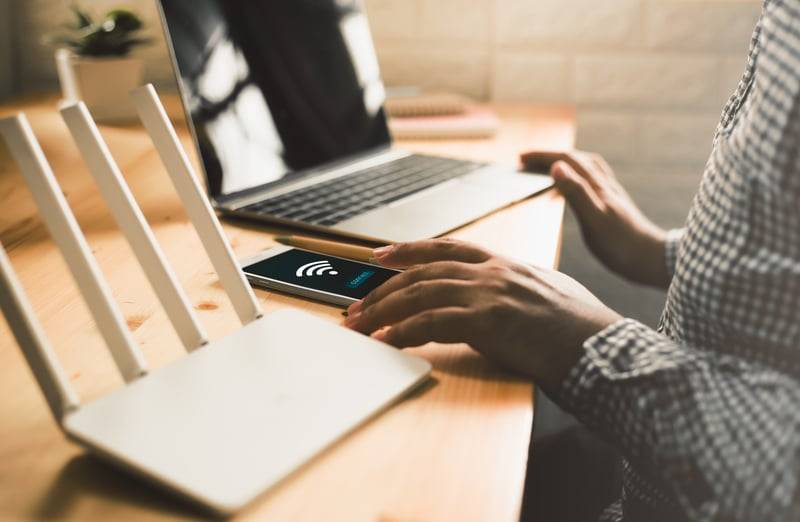In today's fast-paced digital age, internet speed has become essential to our daily lives. A fast and reliable internet connection is critical to our online experience, whether for work, entertainment, or communication. But how do you know if your internet speed is up to par?
In this article, we'll walk you through the steps to test your internet speed and give you some tips on what to do if your speed is slower than expected.
Step 1. Choose a Reliable Speed Testing Website
Many websites allow you to test your internet speed. However, not all speed-testing websites are created equal. Some websites may give inaccurate results, which can be frustrating and misleading. This could happen for many reasons: some are affiliated with internet service providers and have biases to show accurate data. Others may have a limited network of testing servers that affects the results and displays unreliable results. Therefore, choosing a reliable speed-testing website that uses accurate measurement methods is essential.
Step 2. Close Other Programs and Devices
Before you start the speed test, close all other programs and devices using your internet connection. This includes streaming services like Netflix, YouTube, or Spotify and any downloads or updates running in the background.
These programs can consume a significant amount of your bandwidth and affect your internet speed test results.
Step 3. Connect to a Wired Connection
Connecting your device directly to your router using an Ethernet cable is recommended for the most accurate results. This is because Wi-Fi signals can be affected by interference from other devices, walls, or other physical barriers, which can affect the accuracy of your speed test.
If connecting via an Ethernet cable isn't possible, place your device as close to the router as possible.
Step 4. Run the Speed Test
Once you've completed the previous steps, it's time to run the speed test. To do this, visit the Gcore speed test website and click the "Run test" button. The speed test will measure your download and upload speeds and your ping or latency. These are the three important factors that determine your internet speed. Download speed is the rate at which data is being moved to your device from the Internet. This is the most crucial factor in online activities like streaming, downloading files, or browsing the web. Upload speed, however, refers to the rate at which data is transferred from your device to the Internet. This is important for video conferencing, online gaming, or uploading files to the cloud.
Ping or latency measures the delay between your device and the server. This is important for activities like online gaming, where a high ping can cause lag and affect your gameplay.
Step 5. Interpret Your Results
Once the speed test is complete, the website will display your download and upload speeds and your ping or latency. These results are typically measured in megabits per second (Mbps). In general, a higher number means a faster internet connection. However, internet speed requirements vary depending on your online activities.
For example, if you're mainly using the Internet to browse the web, check emails, or stream music, a 25 Mbps or higher download speed should be sufficient. However, if you're streaming high-definition videos or playing online games, you may need a download speed of 50 Mbps or higher.
Step. 6 What to Do if Your Speed is Slow
If your speed test results are slower than expected, you can do a few things to improve your internet speed. Here are some tips:
- Restarting your router can improve your internet speed. Unplug your router, wait a few seconds, and plug it back in.
- Ensure you're subscribed to an internet plan that meets your needs. If you're experiencing slow internet speeds, it could be because you're on a plan with a low download speed.
- The placement of your router can also affect your internet speed. If possible, avoid walls or other obstacles interfering with the Wi-Fi signal. It would help to place your router in a central location.
- If your router is outdated, it could be why you're experiencing slow internet speeds. Consider getting an upgraded router. A newer model would be best.
- Other devices can interfere with your Wi-Fi signals. For example, microwaves or cordless phones could interfere with it. Consider moving them away from your router or switching to a wired connection if these are close by.
- If none of the above tips work, it may be time to contact your internet service provider (ISP) and ask them to troubleshoot the issue. They may be able to identify and fix the problem.
Bottom Line
Testing your internet speed is crucial in ensuring you have a fast and reliable internet connection. Following the steps outlined in this article, you can quickly and easily test your internet speed and take the steps needed to improve it if it's slower than expected. Remember, a fast internet connection is essential for a seamless online experience, so don't hesitate to contact your ISP if you're experiencing slow internet speeds.




